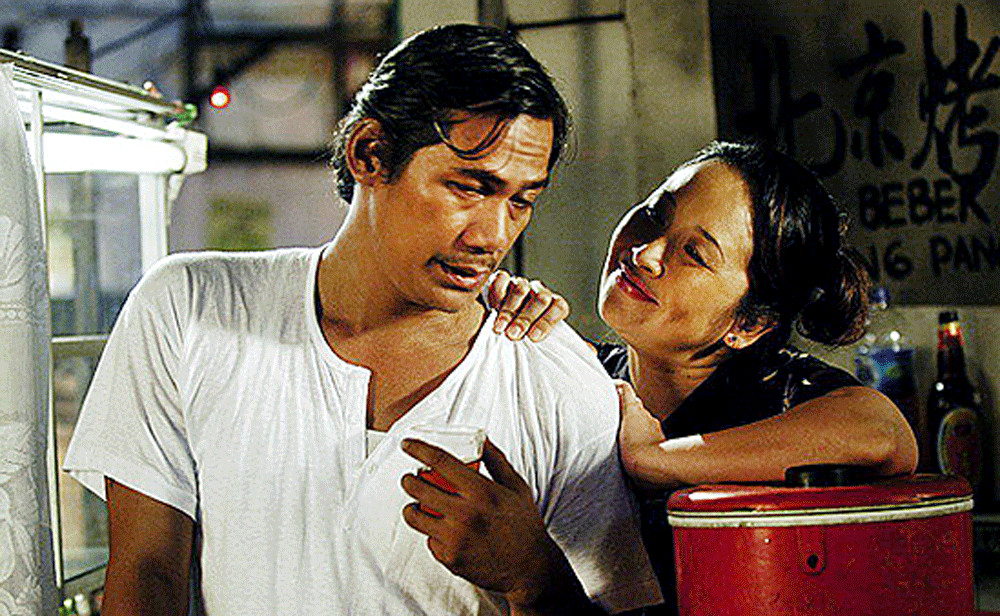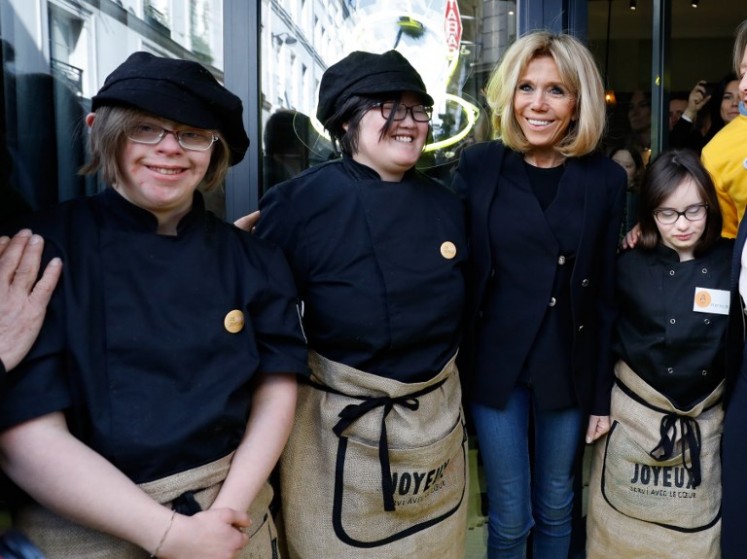The voices that desperately need to be heard
The Enam Belas ( 16 ) Film Festival aims to shed light on unheard voices and sexual violence against women, a problem that persists.
Change Size
 Berbagi Suami, 2006 (Love for Share). (Courtesy of Kalyana Shira Films/-)
Berbagi Suami, 2006 (Love for Share). (Courtesy of Kalyana Shira Films/-)
T
he Enam Belas ( 16 ) Film Festival is held in conjunction with the international 16 Days of Activism Against Sexual Violence, which runs annually from Nov. 25 (International Day For Elimination of Violence Against Women) to Dec. 10 (Human Rights Day).
Initiated by the Center for Women’s Global Leadership (CWGL) in 1991, up to 3,700 organizations from 164 countries have participated in the campaign.
The Enam Belas Film Festival will take place in various venues in several cities including Jakarta, South Tangerang, Surabaya, Semarang, Rembang, Jambi, Jombang, Batanghari, Muara Bungo, Sragen, Yogyakarta, Bengkulu, Bandar Lampung and Denpasar.
The festival boasts an excellent repertoire of Indonesian films that highlight sexual abuse and gender violence. Among the titles screened include Mouly Surya’s Cannes-award-winning masterpiece Marlina: A Murder in Four Acts, What They Talk About When They Talk About Love and Berbagi Suami (Love for Share).
The short film Damai Dalam Kardus opened the festival and told the story of youngsters from Poso, Central Sulawesi, and their quest to find their missing father, who follows a different religion. This fact is significant because Poso was the site of sectarian violence between Christians and Muslims in the 2000s.
National Commission on Violence Against Women (Komnas Perempuan) chairperson Magdalena Sitorus commented during the opening screening that the festival advocated the importance of listening to the experiences of the abused and giving them the proper platforms so that such cases did not reoccur.
She explained that Komnas Perempuan itself was formed following the mass rapes of mainly ethnic Chinese women during the 1998 riots and their unwillingness and fear of speaking out.
The festival will also showcase a play entitled Blackbird, which is a gender-violence and equality themed play created by Scottish playwright David Harrower.
The play will be the first non-musical production by the Jakarta Performing Arts Community (JPAC), which has been holding musical theater performances since its inception in 2014.
The performance is done in collaboration with sexual violence survivor advocacy and empowerment group the Pulih Foundation as well as Komnas Perempuan. It will be directed by Fonnyta Amran and stars Rizal Iwan and Ajeng Sharfina.
Blackbird’s ticketing system will be one that involves donations instead of fixed ticket prices. The play will be held at the SAE Institute in Pejaten, South Jakarta on Dec. 8 and 9.
According to Rizal, the play was chosen for the festival as it is “very thought-provoking, as it depicts a young woman confronting a man from her past, in which she was allegedly sexually abused”. The play has won multiple literary and theater awards since its first performance in 2005.
“Blackbird was chosen as it was believed to be a necessary step to open eyes and start dialogue about both sexual violence and violence against children and how they interact and intersect,” stated JPAC’s co-producer for Blackbird, Rakaputra Papuntungan.
“By showcasing a complex scenario, JPAC looks to provoke both critical thinking and compassionate responses toward all cases.”
Despite the efforts and campaigns of many, it seems that sexual violence against women in Indonesia is a problem so entrenched in society’s make up that eradicating it will be a mammoth challenge.
Most of the violence stems from a feeling of “justification” mostly by males who hold personally skewed interpretations of Muslim teachings, which give them the upper hand, making them feel as if they can do anything to women without consequence.
In a survey conducted in 2016 by Lentera Sintas Indonesia, 6 percent out of 25,000 respondents said they had been raped at one point in their life. Out of those who had been raped, only 1 percent of the victims pursued the legal process until the end.
In 2017, Komnas Perempuan reported an increase in cases of violence against women, with 348,446 cases reported that year. The figure was starkly troubling as the commission found a 25 percent increase in gender-based violence from the previous year.
Other than rape and violence, other forms of gender abuse in Indonesia have been in a way, tolerated by the government, usually behind the tired and pointless front of “preserving religious values”.
A recent decree by the Supreme Court upheld the 1974 Marriage Law, which legalizes marriage between minors, with women only needing to be 16 years old to be eligible, despite their objections.
Activists in Indonesia estimate that millions of sexual violence victims do not report their experiences, usually out of fear of reprisal from their abusers, social stigma, victim blaming and due to the fact that the authorities rarely take such complaints seriously.









